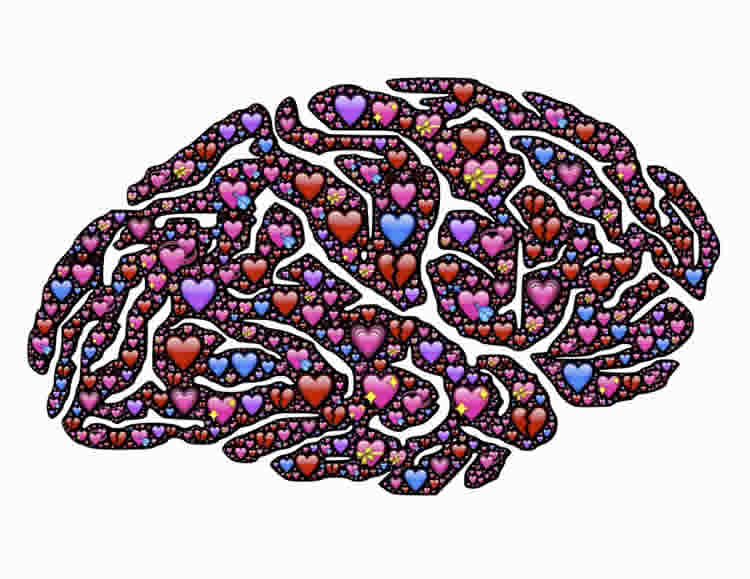The fluctuations of your heartbeat may affect your wisdom, according to new research from the University of Waterloo.
The study suggests that heart rate variation and thinking process work together to enable wise reasoning about complex social issues. The work by Igor Grossmann, professor of psychology at Waterloo, and colleagues based at the Australian Catholic University, appears in the online journal Frontiers in Behavioral Neuroscience.
Their study breaks new ground in wisdom research by identifying conditions under which psychophysiology impacts wise judgment.
“Our research shows that wise reasoning is not exclusively a function of the mind and cognitive ability,” says Prof. Grossmann. “We found that people who have greater heart rate variability and who are able to think about social problems from a distanced viewpoint demonstrate a greater capacity for wise reasoning.”

The study extends previous work on cognitive underpinnings of wise judgment to include consideration how the heart’s functioning impacts the mind.
A growing consensus among philosophers and cognitive scientists defines wise judgment to include the ability to recognize the limits of one’s knowledge, to be aware of the varied contexts of life and how they may unfold over time, to acknowledge others’ points of view, and to seek reconciliation of opposing viewpoints.
The new study is the first to show that the physiology of the heart, specifically the variability of heart rate during low physical activity, is related to less biased, wiser judgment.
Human heart rate tends to fluctuate, even during steady-state conditions, such as while a person is sitting. Heart rate variability refers to the variation in the time interval between heartbeats and is related to the nervous system’s control of organ functions.
The researchers found that people with more varied heart rates were able to reason in a wiser, less biased fashion about societal problems when they were instructed to reflect on a social issue from a third-person perspective. But, when the study’s participants were instructed to reason about the issue from a first-person perspective, no relationship between heart rate and wiser judgment emerged.
“We already knew that people with greater variation in their heart rate show superior performance in the brain’s executive functioning such as working memory,” says Prof. Grossmann. “However, that does not necessarily mean these people are wiser – in fact, some people may use their cognitive skills to make unwise decisions. To channel their cognitive abilities for wiser judgment, people with greater heart rate variability first need to overcome their egocentric viewpoints.”
The study opens the door for further exploration of wise judgment at the intersection of physiological and cognitive research.
In addition to Jarosz, the research team consisted of Romain Prévost, hAlec Jacobson and Olga Sorkine-Hornung.
Source: Nick Manning – University of Waterloo
Image Credit: The image is in the public domain.
Original Research: Abstract for “A Heart and a Mind: Self-distancing Facilitates the Association between Heart Rate Variability, and Wise Reasoning” by Igor Grossmann, Baljinder K. Sahdra and Joseph Ciarrochi in Frontiers in Behavioral Neuroscience. Published online March 28 2016 doi:10.3389/fnbeh.2016.00068
Abstract
A Heart and a Mind: Self-distancing Facilitates the Association between Heart Rate Variability, and Wise Reasoning
Cardiac vagal tone (indexed via resting heart rate variability – HRV) has been previously associated with superior executive functioning. Is HRV related to wiser reasoning and less biased judgments? Here, we hypothesize that this will be the case when adopting a self-distanced (as opposed to a self-immersed) perspective, with self-distancing enabling individuals with higher HRV to overcome bias-promoting egocentric impulses and to reason wisely. However, higher HRV may not be associated with greater wisdom when adopting a self-immersed perspective. Participants were randomly assigned to reflect on societal issues from a self-distanced- or self-immersed perspective, with responses coded for reasoning quality. In a separate task, participants read about and evaluated a person performing morally ambiguous actions, with responses coded for dispositional vs. situational attributions. We simultaneously assessed resting cardiac recordings, obtaining 6 HRV indicators. As hypothesized, in the self-distanced condition, each HRV indicator was positively related to prevalence of wisdom-related reasoning (e.g., prevalence of recognition of limits of one’s knowledge, recognition that the world is in flux/change, consideration of others’ opinions and search for an integration of these opinions) and to balanced vs. biased attributions (recognition of situational and dispositional factors vs. focus on dispositional factors alone). In contrast, there was no relationship between these variables in the self-immersed condition. We discuss implications for research on psychophysiology, cognition, and wisdom.
“A Heart and a Mind: Self-distancing Facilitates the Association between Heart Rate Variability, and Wise Reasoning” by Igor Grossmann, Baljinder K. Sahdra and Joseph Ciarrochi in Frontiers in Behavioral Neuroscience. Published online March 28 2016 doi:10.3389/fnbeh.2016.00068







